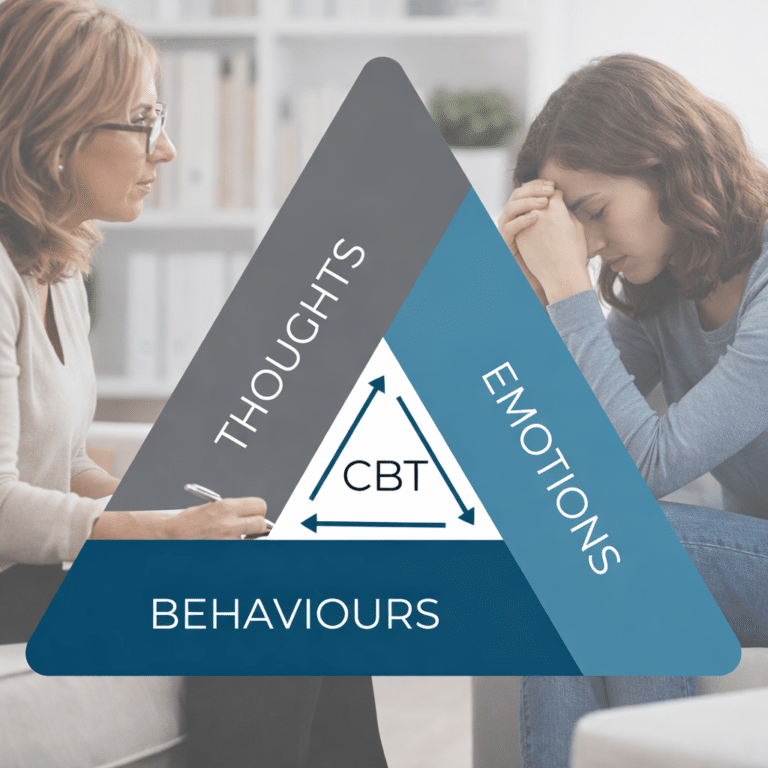What Is Chronic Impulsivity? Understanding Impulse-Control Disorders

Sydney Johnston

Chronic impulsivity refers to a persistent tendency to act on sudden urges without considering consequences. In its severe form—often recognized as an impulse control disorder—it can disrupt relationships, work, finances, and even legal standing. When impulsivity becomes persistent and difficult to manage, it may point to something deeper than a fleeting lack of control.
What Is an Impulse Control Disorder?
Impulse Control Disorders (ICDs) are psychiatric conditions marked by ongoing difficulty resisting urges that may lead to harmful behaviors toward oneself or others. These are not isolated lapses in judgment, but recurring patterns where individuals often feel a build-up of tension before the act, a sense of relief during the behavior, and guilt afterward. While the behaviors differ—ranging from aggressive outbursts to compulsive stealing—they share a common thread: impaired emotional and behavioral self-regulation.
Research shows these disorders are linked to dysfunction in the brain’s prefrontal cortex, which plays a key role in impulse control, decision-making, and inhibition. Neurotransmitter imbalances, particularly involving serotonin and dopamine, may also contribute to this dysregulation (Grant & Chamberlain, 2014).

Types of Impulsivity: A Multi-Dimensional Approach
Clinically, impulsivity is often broken down into:
- Motor impulsivity: This involves acting without forethought or physical inhibition. Individuals may speak out of turn, interrupt others, or engage in sudden risky actions without considering the consequences. It’s often observed in ADHD and other disorders where response inhibition is compromised.
- Cognitive impulsivity: This type affects decision-making and mental focus. People with high cognitive impulsivity may jump to conclusions, struggle with problem-solving, or find it hard to think things through. It’s often linked to poor planning and short-term thinking.
- Non-planning impulsivity: This involves a lack of future-oriented thinking and difficulty setting or working toward long-term goals. Individuals may prioritize immediate gratification over delayed rewards, contributing to challenges with self-discipline and follow-through.
- Affective impulsivity: This refers to difficulty managing intense emotions, leading to quick, emotionally charged reactions. Examples include angry outbursts, crying spells, or rash decisions during emotional distress. It’s commonly seen in conditions like Borderline Personality Disorder and Intermittent Explosive Disorder.
Understanding these distinctions is key to tailored treatment—some therapies or medications target specific impulsive pathways.
Causes of Impulsivity
Chronic impulsivity arises from a blend of genetic, biological, and environmental influences:
- Brain chemistry & structure: Low serotonin levels—particularly in the prefrontal cortex—are linked with impulsive aggression (e.g., in IED), while reward-circuit dysfunction is implicated in kleptomania or pyromania.
- Genetic vulnerability: Family studies show ICDs and related conditions (like ADHD or BPD) often run in families.
- Trauma & upbringing: Childhood adversity or poor emotional modeling can disrupt impulse regulation later on.
Symptoms of Impulsivity
Signs of impulsivity vary depending on the type, but often include:
- Sudden emotional outbursts (anger, aggression)
- Compulsive behaviors (stealing, fire-setting)
- Impulsive spending, binge eating, substance misuse
- Low frustration tolerance, chronic boredom, diminished self-control
- Feelings of guilt or shame after impulsive actions
In adults, untreated impulsivity also correlates with accidents, relationship issues, and occupational instability, highlighting the need for timely intervention.
Treatment Options for Chronic Impulsivity

- Psychotherapy
CBT helps manage impulsivity by addressing thought patterns and building healthier coping skills, while DBT adds mindfulness and emotion regulation—especially effective for mood and personality-related impulsivity. Family or group therapy is especially useful in cases like ODD or CD to improve communication and dynamics. - Medication
SSRIs (e.g., fluoxetine) may reduce aggression and compulsive urges. Mood stabilizers like lithium help manage explosive behavior. Stimulants or non-stimulants are often prescribed when ADHD is involved. Treatment should be tailored to individual needs and co-occurring conditions. - Skills & Lifestyle
Mindfulness, journaling, and “pause strategies” (like waiting 10 minutes before reacting) can improve impulse control. Techniques for emotional regulation, along with consistent sleep, exercise, and nutrition, support long-term brain and behavioral balance.
Final Thoughts
Chronic impulsivity is much more than poor self-control—it’s a recognized psychiatric condition with deep biological roots and significant social consequences. But it’s also treatable. With a combination of evidence-based therapy, medication, behavioral techniques, and lifestyle changes, long-term management is achievable.
Responsibly edited by AI
Other Blog Posts in
Animo Sano Psychiatry is open for patients in North Carolina, Georgia and Tennessee. If you’d like to schedule an appointment, please contact us.
Get Access to Behavioral Health Care
Let’s take your first step towards. Press the button to get started. We’ll be back to you as soon as possible.ecovery, together.




